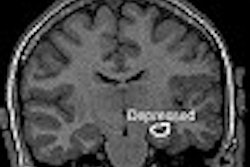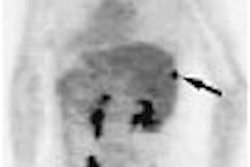Dear AuntMinnie Member,
Last month, our MRI Digital Community brought you the news that undergoing certain types of MRI scans could actually improve the moods of some psychiatric patients. This month we take the opposite tack, with news on the latest research employing MRI to assess patients who are suffering or are at risk of depressive disorders. Fortunately, no one is suggesting that the scans are to blame.
Dear AuntMinnie Member,
Last month, our MRI Digital Community brought you the news that undergoing certain types of MRI scans could actually improve the moods of some psychiatric patients. This month we take the opposite tack, with news on the latest research employing MRI to assess patients who are suffering or are at risk of depressive disorders. Fortunately, no one is suggesting that the scans are to blame.
In our first article, Canadian researchers found that teenagers who suffered from major depression also appeared to have hippocampi that were 17% smaller on average than controls. The size differential was particularly noteworthy in the left hippocampus.
The findings reinforce the idea that depression is a legitimate illness with biological markers that can be visualized with MRI, the researchers said. The study could help clinicians diagnose pediatric depressive disorders, they added.
In another study, U.S. investigators found that patients who suffer traumatic brain injury are at risk for experiencing long-term psychiatric disorders a year later. Patients with head injuries had a 30% chance of developing major depression up to a year later, the researchers found.
MRI detected structural abnormalities in the brain following the traumatic event that the researchers believed could be related to the onset of depression. You can find out which abnormalities they were by visiting our MRI Digital Community, at http://mri.auntminnie.com.



















